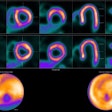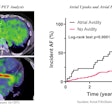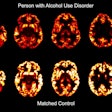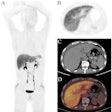
Most patients with diffuse large B-cell lymphoma who have a clear PET scan can safely skip radiation treatment, according to a study funded by the U.S. National Cancer Institute that was presented December 8 at the 2019 American Society of Hematology conference in Orlando, FL.
The researchers, led by Dr. Daniel Persky from the University of Arizona Cancer Center, examined 132 patients with stage I and II diffuse large B-cell lymphoma who underwent PET scans after receiving three cycles of a standard chemotherapy regimen known as rituximab, cyclophosphamide, doxorubicin, vincristine, and prednisone (R-CHOP). Diffuse large B-cell lymphoma is a fast-spreading subtype of non-Hodgkin's lymphoma.
Patients who had a negative PET scan received one additional cycle of R-CHOP to complete their treatment, whereas those with a positive PET scan underwent involved-field radiation therapy to regions affected by cancer, as well as subsequent treatment with ibritumomab tiuxetan, a radioimmunotherapy drug.
Overall, the researchers found that both treatment strategies resulted in excellent outcomes for the patients. Approximately 91% of patients who did not undergo radiotherapy survived beyond the first five years after treatment, and 89% of them no longer had cancer. Roughly the same proportion of patients (93%) who did undergo radiotherapy were alive five years after treatment, and 86% of them were cancer-free.
These findings support changing the standard of cancer care for early-stage, or limited, diffuse large B-cell lymphoma to include PET-directed therapy, Persky noted in a statement.
"We find that many patients can forgo radiation and get less chemo -- and still get excellent results," he said. "This means people can heal from treatment sooner, and that care costs can go down. I think doctors and patients can agree: The less cancer treatment, the better."




















